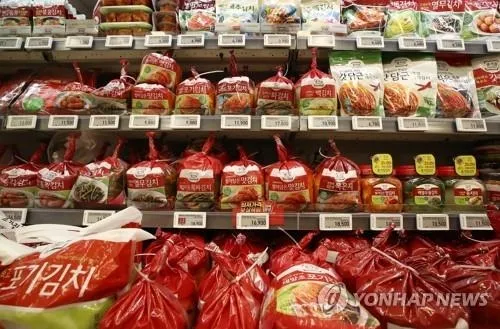Why Did South Korea's Food Exports to the US Decline in July?

Synopsis
Key Takeaways
- South Korea's food exports to the U.S. fell 6.7% in July.
- The decline marks the first drop in nearly two years.
- Instant noodles and snacks saw significant export decreases.
- Cumulative exports showed a 21.3% increase for the year-to-date.
- Government meetings are being held to support affected industries.
Seoul, Aug 20 (NationPress) South Korea's food exports to the United States experienced their first year-on-year decline in nearly two years during July, primarily due to Washington's extensive tariff policies, data revealed on Wednesday.
In July, the nation shipped US$139 million worth of agricultural and food products to the U.S., reflecting a 6.7 percent decrease compared to the same month last year, according to data from the Korea Trade Statistics Promotion Institute.
This marks the first drop since May 2023 in South Korea's food exports to the U.S., as reported by Yonhap news agency.
Examining specific items, exports of instant noodles, known as “ramyeon” in Korean, saw a decline of 17.8 percent year-on-year, totaling $14 million.
Snack exports plummeted even more significantly, by 25.9 percent to $20 million, while exports of sauces and ginseng fell 7.2 percent and 13.4 percent, respectively.
For the January-July period, cumulative exports to the U.S. rose 21.3 percent compared to the same period last year. However, this growth rate has notably slowed from a 27 percent increase seen during the January-June period.
Industry experts attribute this slowdown in part to companies stockpiling goods ahead of the tariff deadline set by the Trump administration, which announced a 15 percent tariff on all South Korean products starting August 7.
This panic buying was particularly evident in instant ramyeon, whose shipments to the U.S. surged 58.7 percent year-on-year in June.
Market analysts suggest that food exports may decline further as U.S. consumers cut back on spending amid a bleak economic forecast.
"Local companies operating in the U.S. are feeling the pinch from reduced consumer spending," noted analyst Kang Eun-ji from Korea Investment & Securities Co., highlighting that sales of major food firms, like CJ CheilJedang Corp., fell in the second quarter.
To tackle this challenge, Agriculture Minister Song Mi-ryung plans to hold a meeting later Wednesday to discuss strategies for enhancing food exports.
This meeting, the third of its kind, aims to outline governmental support for export firms and gather insights from businesses and relevant agencies, according to the ministry.










